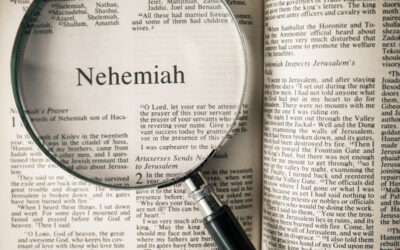Communion – also known as the Eucharist – is more than a remembrance; it is a sacred act of worship that has been observed for millennia. As a small group leader, you have the privilege of guiding your group into a holy moment where Christ is exalted, hearts are examined, and grace is received. The Lord’s Table, rightly approached, becomes a formative practice of both confession and consecration.
Begin with the Word
Before serving the bread and cup, ground your gathering in Scripture. Communion is in all three synoptic gospels plus Paul’s writings. Choose one or more of these passages:
- Matthew 26:26-29
- Mark 14:22-25
- Luke 22:14-20
- 1 Corinthians 11:23-29
For a glimpse into the early church’s practice, consider reading from the Didache (which means “the teaching of the 12”) in Chapter 9, an ancient Christian teaching that confirms the sacredness of the Eucharist, also known as Communion. Here is Chapter 9 translated from the greek text:
Now concerning the Eucharist, give thanks this way. First, concerning the cup:
We thank thee, our Father, for the holy vine of David Thy servant, which You madest known to us through Jesus Thy Servant; to Thee be the glory for ever.
And concerning the broken bread:
We thank Thee, our Father, for the life and knowledge which You madest known to us through Jesus Thy Servant; to Thee be the glory for ever. Even as this broken bread was scattered over the hills, and was gathered together and became one, so let Thy Church be gathered together from the ends of the earth into Thy kingdom; for Thine is the glory and the power through Jesus Christ for ever.
But let no one eat or drink of your Eucharist, unless they have been baptized into the name of the Lord; for concerning this also the Lord has said, “Give not that which is holy to the dogs.”
A Sacred Invitation for Believers
Both Scripture and the early church writings, such as the Didache, make clear that the Lord’s Supper is not a general ritual, but a covenant meal reserved for those who have placed their faith in Jesus Christ. Paul warns in 1 Corinthians 11:27–29 that to partake in an unworthy manner is to sin against the body and blood of the Lord, and the Didache (Chapter 9 above) echoes this caution: “Let no one eat or drink of your Eucharist unless they have been baptized into the name of the Lord.” Communion is an act of participation in Christ’s sacrifice, intimate and holy. As leaders, we should extend the invitation warmly, while also honoring its boundaries by encouraging only believers to partake. This maintains the reverence of the moment and protects the integrity of communion.
Theology of the Communion: Grace and Mercy Intertwined
The Lord’s Supper is both a means of grace and a moment of mercy. It points us to Christ’s once-for-all sacrifice while also strengthening us for present obedience. God uses this Table to form Christlikeness in us. It is not a place of shame, but of repentance, renewal, and recommitment that we are called to observe.
“Let a person examine himself, then, and so eat of the bread and drink of the cup.” ~ 1 Cor. 11:28
Preparing Hearts: Vertical and Horizontal Reflection
Before leading your group to take Communion, gently walk them through these two areas of self-examination:
Vertical Reflection – Our Relationship with God
Invite each person to silently consider how they have fallen short in thought, word, deed, or desire. Encourage private confession and a moment of resting in God’s mercy.
“If we confess our sins, He is faithful and just to forgive us…” ~ 1 John 1:9
Horizontal Reflection – Our Relationship with Others
Ask participants to consider whether they have sinned against or withheld forgiveness from another. This is an opportunity to extend grace and seek unity.
“Forgive as the Lord forgave you.” ~ Colossians 3:13
“If your brother sins against you…” ~ Matthew 18:15-17
The Elements: Words to Guide the Group
The Bread
Hold up the bread and say:
“This is my body, which is for you; do this in remembrance of me.” ~ 1 Cor. 11:24
Then add:
By His mercy, our sins are not counted against us. By His grace, we are strengthened to walk in newness of life.
[Invite them to eat the bread]
The Cup
Hold the cup and say:
“This cup is the new covenant in my blood; do this, whenever you drink it, in remembrance of me.” ~ 1 Cor. 11:25
Then add:
This cup represents Christ’s final and sufficient sacrifice. His blood satisfied justice and secured our adoption into God’s family.
[Invite them to drink the cup]
Encouragement in Leading Communion
Don’t worry about sounding “perfect.” Speak with reverence, humility, and clarity. Your role is to point others to Christ, not perform. If possible, create space for quiet before and after to let the Spirit speak.



